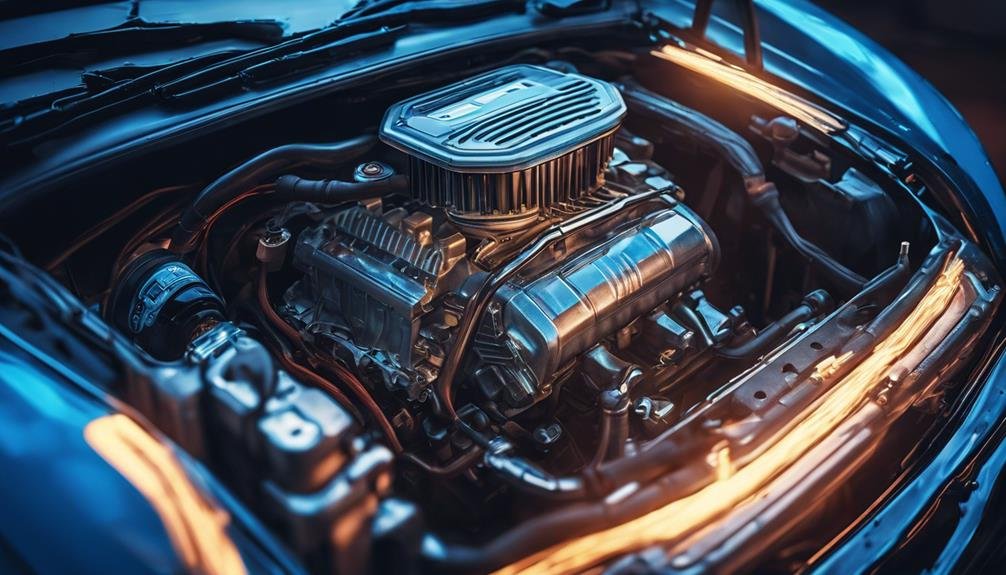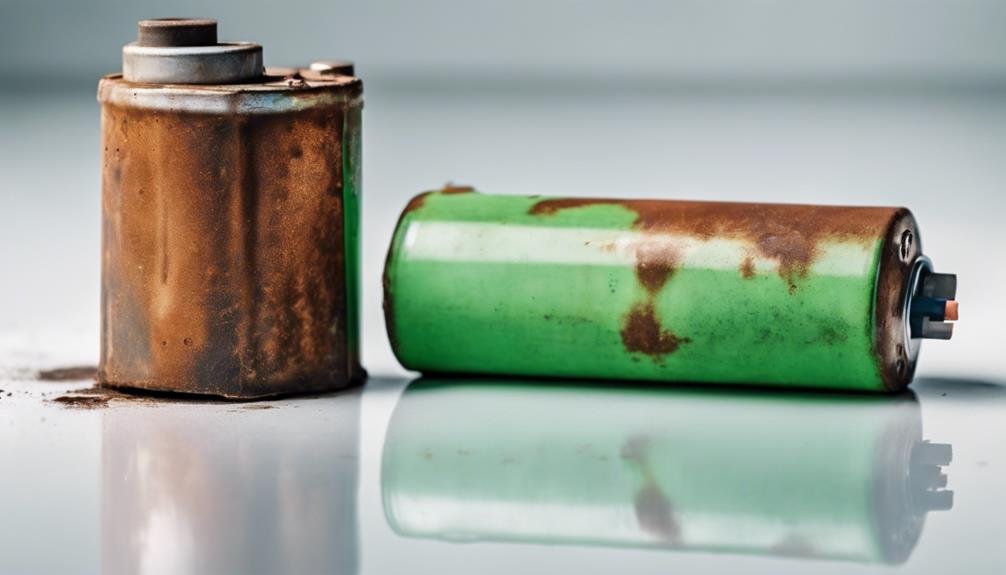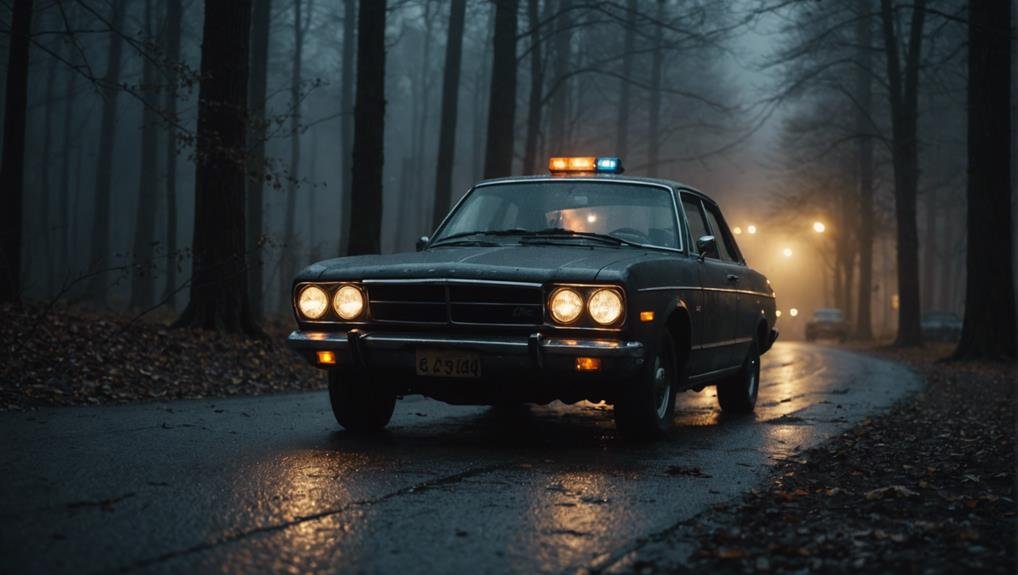After a jump, you don't necessarily need a new battery, but it's crucial to evaluate your battery's health and identify underlying issues affecting its performance. A jump start can be a wake-up call to check for signs of a failing battery, like dim lights, dashboard warnings, or corrosion on terminals. Regular maintenance and monitoring performance can extend battery life. If you're experiencing habitual jump starts, it may indicate a faulty alternator or electrical faults. To make sure your car runs smoothly, consider replacing your battery if it's over five years old or showing signs of decline – and explore what else you can do to prevent breakdowns.
Key Takeaways
- A single jump start doesn't necessarily mean you need a new battery, but frequent jump starting may indicate a failing battery.
- If your car struggles to start after a jump, it may be a sign of a failing battery that needs replacement.
- If your car takes multiple attempts to start after a jump, it's likely a sign of a weak or dying battery.
- Dead batteries can leave you stranded, so consider replacing the battery if it's over five years old or shows signs of weakness.
- Turn off unnecessary electrical accessories after a jump start and check for signs like dim lights or dashboard warnings to determine if a new battery is needed.
Understanding Battery Lifespan Expectations
You can typically expect your car battery to last around 3-5 years before it needs to be replaced, but this lifespan can vary greatly depending on several factors. For instance, your driving habits, the age of your car, and electrical system faults can all impact how long your battery lasts.
If you've recently had to Jump Start a Dead battery, it doesn't necessarily mean you need to replace the battery immediately. However, it's important to identify the underlying issue causing the dead battery to make sure it doesn't happen again.
Regular maintenance, such as checking the battery's condition and charging system, can help extend its lifespan. A well-maintained battery in good condition can last up to 5 years or more. On the other hand, a battery that's years old and has been subjected to heavy usage might need to be replaced sooner.
It's vital to monitor your battery's performance and address any issues promptly to prevent further problems. By understanding these factors, you can take proactive steps to optimize your battery's lifespan and avoid unexpected breakdowns.
Signs of a Failing Car Battery
After a jump start, if your car struggles to start or exhibits other unusual behavior, it may be a sign that your battery is on its way out. If your car battery needs a jump to start, it may indicate the need to replace it soon. When you start a dead battery, pay attention to any unusual signs that may suggest the need for a new one.
If, after a jump, your car's lights flicker or dim, it could be a sign that your battery is failing. Likewise, if dashboard warning lights appear or you experience electrical malfunctions, it may be an indication that your battery is on its way out. Corrosion on the battery terminals after a jump can also suggest that your car battery needs to be replaced.
Don't overlook these signs, as they can signal the need for a new battery soon. If you've needed a battery replacement in the past, you know how inconvenient it can be. By recognizing these signs, you can prevent getting stranded with a dead battery and ensure your car runs smoothly.
Alternator and Battery Interdependence

One important aspect of a car's electrical system is the interdependent relationship between the alternator and battery. The alternator is responsible for recharging the battery while the engine is running, ensuring a steady supply of power.
However, a faulty alternator can quickly drain the battery, leading to frequent jump starts and recurring battery failures. To prevent this, diagnosing and repairing the alternator is critical. Proper alternator function is necessary for maintaining a healthy and long-lasting car battery.
If your car's battery is frequently dead, it may be a sign of a faulty alternator. In this case, mechanics may recommend reinstalling or replacing the battery after addressing alternator issues. It's important to identify the root cause of the problem to avoid repeated battery failures.
When Jump Starting Becomes a Habit
Frequent jump starts can quickly become a frustrating and costly habit, particularly if the underlying issue is left unchecked. If you find yourself needing to jump start your car regularly, it may be a sign of a deeper problem with your car's battery or charging system. Your car battery might be on its last legs, and you may need a new battery to get your engine running smoothly again.
Here are some red flags to watch out for:
- You're jump starting your car more than once a month
- Your car takes multiple attempts to start after a jump
- Your headlights dim or your engine runs rough after a jump
- You notice your batteries need to be charged frequently
- Your dead car refuses to start even after a jump
If you're experiencing any of these issues, it's crucial to consult a mechanic to identify the root cause of the problem. Leaving the issue unchecked can lead to further damage to your car's electrical components.
Replacing Your Battery Wisely

You should consider replacing your battery if it's over five years old to prevent recurring jump-start issues. If you've had to jump-start your car recently, it may be a sign that your battery is nearing the end of its lifespan. A dead battery can leave you stranded, so it's crucial to address the issue promptly.
If you need to jump-start your car shortly after running it, it may be a sign that you need a new battery. Car batteries can last longer if the alternator effectively charges them after a jump start. To help the alternator do its job, turn off unnecessary electrical accessories to minimize power drainage.
Regularly check for signs like dim lights or dashboard warnings to determine if a battery replacement is needed. Don't wait until your car won't start; replace your battery wisely to bring your car back to peak performance. Investing in a new battery after a jump can save you from future headaches and ensure a smooth ride.
Frequently Asked Questions
Should I Replace the Battery After a Jump-Start?
You shouldn't rush to replace your battery after a jump-start, but if your car needs another jump soon, it might be time to contemplate a new one, especially if it's over five years old.
How Do You Know if I Need a New Battery or Just a Jump?
You'll know if you need a new battery or just a jump by checking your battery's maturity, looking for signs of weakness, and testing its health after a jump start – if it's old or weak, replacement might be necessary.
How Long Will a Battery Last After a Jump-Start?
You'll get some life out of your battery after a jump, but it's temporary; if your alternator's working, it'll recharge your battery, and you might get a few weeks or months, depending on usage and battery maturity.
Does Jump-Starting Ruin Battery?
You're wondering if jump-starting ruins your battery. The good news is it doesn't necessarily, but frequent jump starts can reduce its lifespan. Proper techniques and addressing underlying issues can help preserve the battery.
Conclusion
Now that you've successfully jump-started your vehicle, it's important to monitor your battery's performance.
If you've had to jump-start your car frequently, it may be a sign of a failing battery. Keep an eye out for signs like slow engine crank, dim headlights, and bloated battery terminals.
If you notice any of these symptoms, consider replacing your battery to avoid further issues.
Remember, a new battery isn't always necessary after a jump, but it's vital to assess your battery's condition to prevent future breakdowns.
